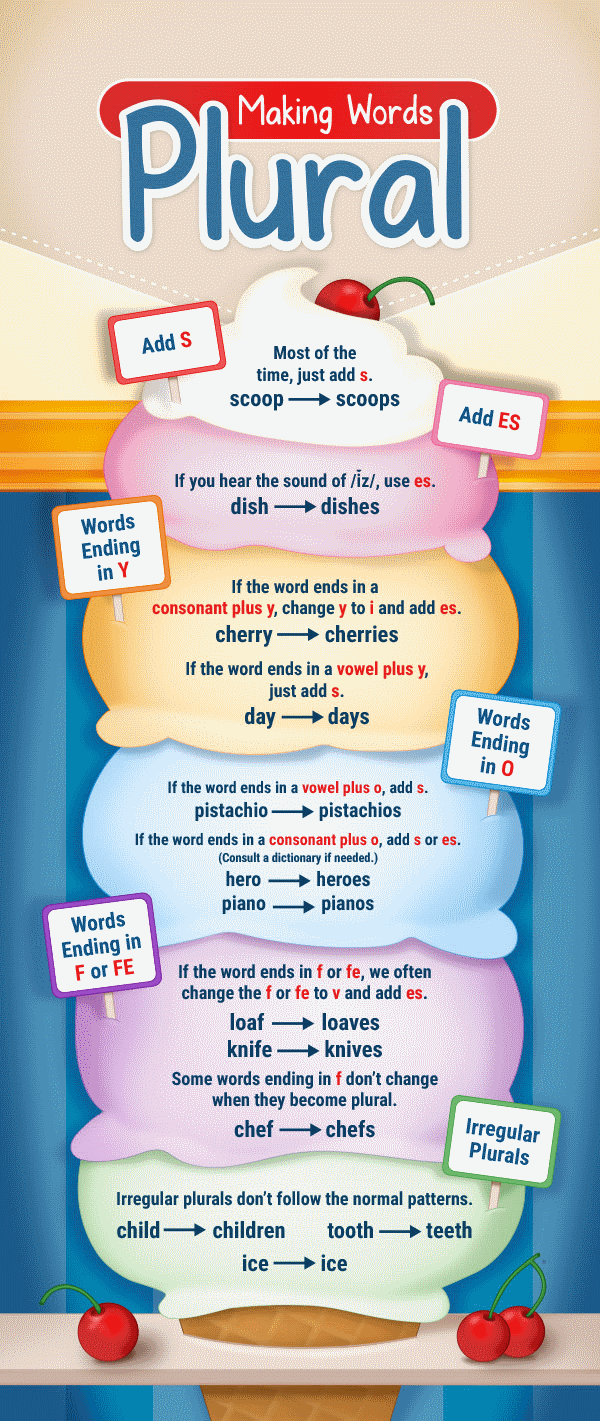Nouns can be either singular or plural. Singular means just one of the person, animal or thing which the noun refers to. Plural means more than one. Forming plural of nouns is not that easy in some cases.
|
singular |
plural |
|
a car |
three cars |
|
my house |
some new houses |
|
that cow |
those cows |
We use singular verbs with singular nouns, and plural verbs with plural nouns:
My house is the white house on the corner.
Those houses were all built in the 1950s.
The rules for making the plural of nouns depend on the spelling and pronunciation. Most nouns form their plural by adding -s:
|
face - faces |
school - schools |
|
hole - holes |
store - stores |
|
monkey - monkeys |
week - weeks |
|
part - parts |
In other cases, the plural depends on how the noun ends.
|
singular |
plural |
rule |
|
box, watch, bus |
boxes, watches, buses |
If the noun ends in -ch, -s, -sh, -x or -z, add -es. The plural ending -es. is pronounced /ɪz/ (/ˈbɒksɪz/, /ˈwɒtʃɪz/). |
|
university, baby, ferry |
universities, babies, ferries |
If the noun ends in a consonant plus -y, change y to i and add -es. |
|
wife, thief, loaf |
wives, thieves, loaves |
For some nouns ending in -f, change -f to -ves but note: roof-roofs, belief-beliefs, cliff-cliffs. |
|
potato, cargo, torpedo |
potatoes, cargoes, torpedoes |
If the noun ends in -o, add -es but note: radio-radios, video-videos. |
|
formula, phenomenon, crisis |
formulae, phenomena, crises |
Some nouns which come from Latin and Greek form their plurals in special ways. |
Here are some important exceptions to the spelling and pronunciation of plural nouns.
|
singular |
plural |
|
child |
children /ˈtʃɪldrən/ |
|
man |
men |
|
woman |
women /ˈwɪmɪn/ |
|
tooth, foot |
teeth /ti:θ/, feet /fi:t/ |
|
mouse |
mice /maɪs/ |
|
sheep, fish, deer |
sheep, fish, deer* |
The plural has the same form as the singular.
A good learner’s dictionary will tell you how to make the plural of any noun.


